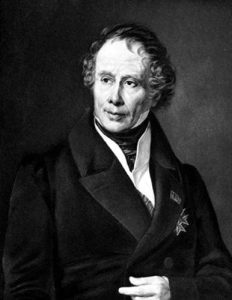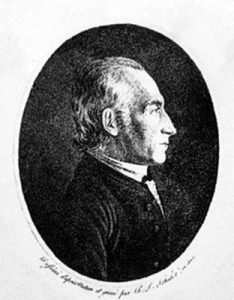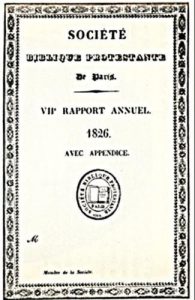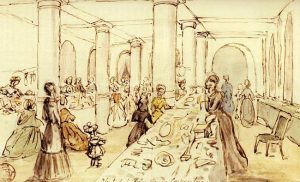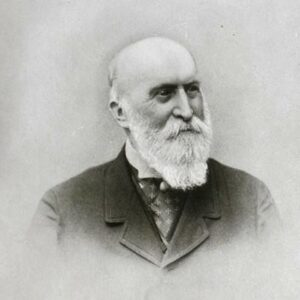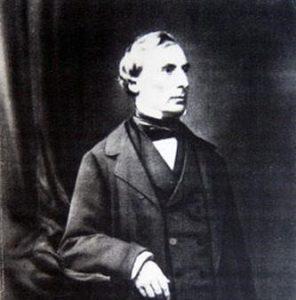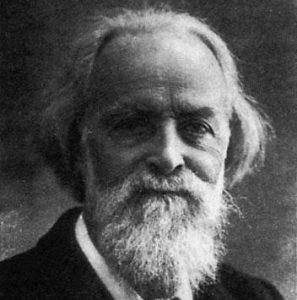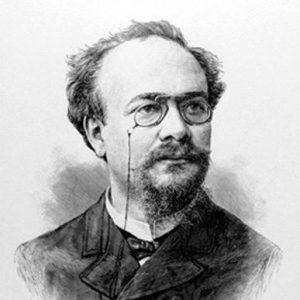A prominent dignitary, freemason and patron of letters
The de Jaucourt family is descended from Duplessis-Mornay on the women’s side. Its members did not all emigrate ; those who stayed in France were converted to Roman Catholicism, while personally remaining strongly inclined towards Protestantism. The chevalier de Jaucourt (1704-1780), François’ great-uncle, was, along with Diderot, the main author of the last volumes of the Encyclopaedia.
François-Arnail was born before the Edict of Toleration ; he was baptized in the Roman Catholic faith. At the time of the French Revolution, he was a colonel in the dragoons of Condé. He was elected deputy (député) at the Assembly (« feuillant »), and he defended King Louis XVI. He was imprisoned after August 10, 1792, but he escaped to Switzerland with the help of the Staëls. He came back after the 18 Brumaire and became a member of the Tribunat where he spoke in favour of the Concordat (he had recovered his Protestant identity). Under the Empire he was elected to the Senate and after escorting King Joseph to Naples he was made Count. In 1814, he voted in favour of the impeachment of Napoleon and he was appointed member of the provisional government. During the Cent-Jours, he remained loyal to Louis XVIII ; under the Restoration, he was Minister for the Navy for a few months and had an influential, peacemaking role during the Terreur Blanche. Under Charles X he was one of the seven protestant peers in France.
Although not a churchgoer at the time, from 1803 on he was a member to the Paris Consistory. He chaired the Société biblique protestante de Paris (Protestant Bible Society of Paris) at its foundation in 1818, and the Société pour l’encouragement de l’instruction primaire parmi les protestants de France (Society for the encouragement of primary education among French protestants) established in 1829. He was a freemason and member of the Comité directeur of the Grand Orient. Pédézert wrote of him : « he had all the graciousness and the flexibility of a Statesman, and owed it to his ancestors to leave an unbelieving world as a believer » (il avait toutes les elegances et les souplesses d’un home d’Etat, et dut à ses ancêtres de sortir croyant d’un monde incrédule).

